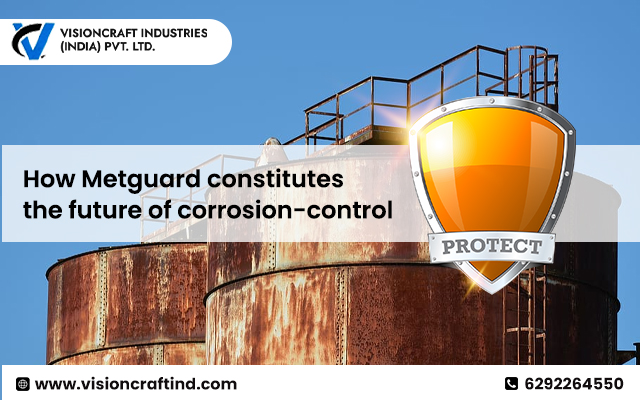The widespread problem of metal corrosion poses severe threats to vital infrastructure, economy, and the environment. Chemical and mechanical methods of extensive surface preparation contribute to the degradation of the environment and increased carbon footprint. Get to know the role of Metguard in futuristic corrosion-control techniques.
Common limitations of existing coating solutions
Barrier-protective coatings, though, offer chemical resistance yet fall short when it comes to providing comprehensive protection against corrosion. These coatings possess pathways that allow limited electrolyte diffusion into their metal-coating interface through pores despite their barriers. This renders them inadequate when it comes to halting corrosion. Moreover, the incorporation of corrosion inhibitors in these coatings results in uneven deposition on metal surfaces, enabling corrosion and pitting. Electrolyte penetration further causes interfacial corrosion prior to actual coating film detachment contributing to metal loss, and repeated preparation of metal surface in maintenance.
How Metguard is transforming the future of corrosion control
Metal Passivation
Metguard uses Metal Passivation technology that acts as an effective solution against electrochemical corrosion by altering the metal interface to extend its longevity. This technology not only restrains electrolyte penetration but also minimizes the thickness of the coating, positively impacting adhesion.
Metal passivation is accomplished efficiently on metal substrates. The progressive transformation of protected structures occurs while being exposed to harsh environments.
Varied Applications
Metguard corrosion-prevention coating offers varied applications in the following structures.
- Those made up of hot and cold rolled steel, stainless steel, hot dip galvanized steel, aluminium alloy profiles, and space age construction materials.
- It enhances the durability of concrete-embedded steel by preserving existing structures and minimizing laborious surface preparations like grit/shot blasting.
- The corrosion-resistant coating can further be applied to roofing and cladding sheets in acidic environments, acting as a quality alternative to galvanized and galvalume sheets.
Advantages offered by Metguard
- Provides outstanding adhesion to mill scale covered new steel, pre-rusted, erected structures, galvanized steel, ferrous alloys, aluminium alloys, and zinc-aluminium coated steel.
- Offers unmatched resilience against undercutting in steel and metalized steel and prevents filiform corrosion in aluminium.
- Metguard reduces the long-term life cycle cost of protection significantly.
The adoption of metguard in corrosion prevention marks a significant step toward addressing the limitations of existing coating solutions. Its innovative approach and diverse applications offer a promising future in safeguarding vital infrastructure, mitigating economic losses, and preserving the environment from the detrimental effects of metal corrosion.

